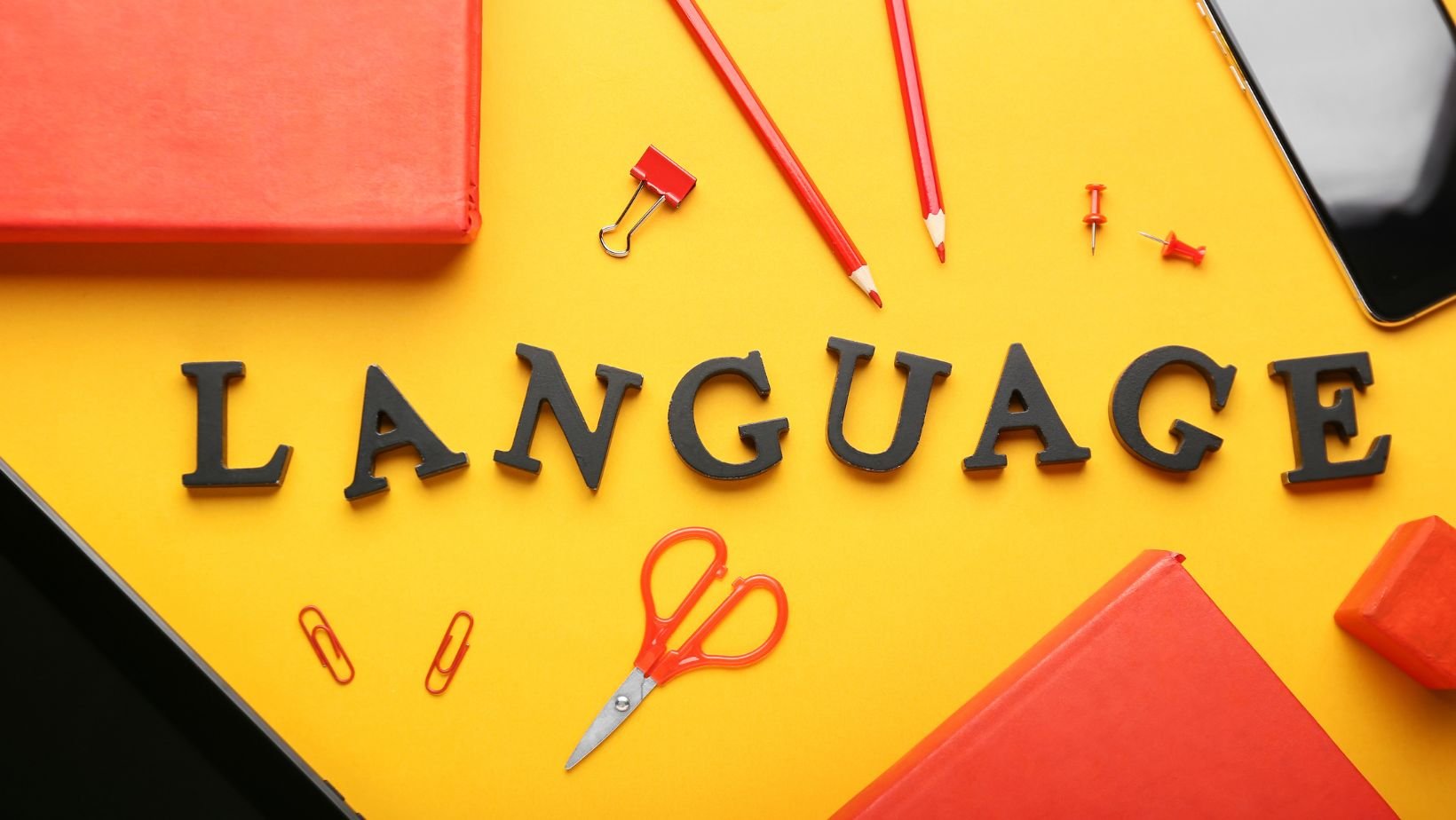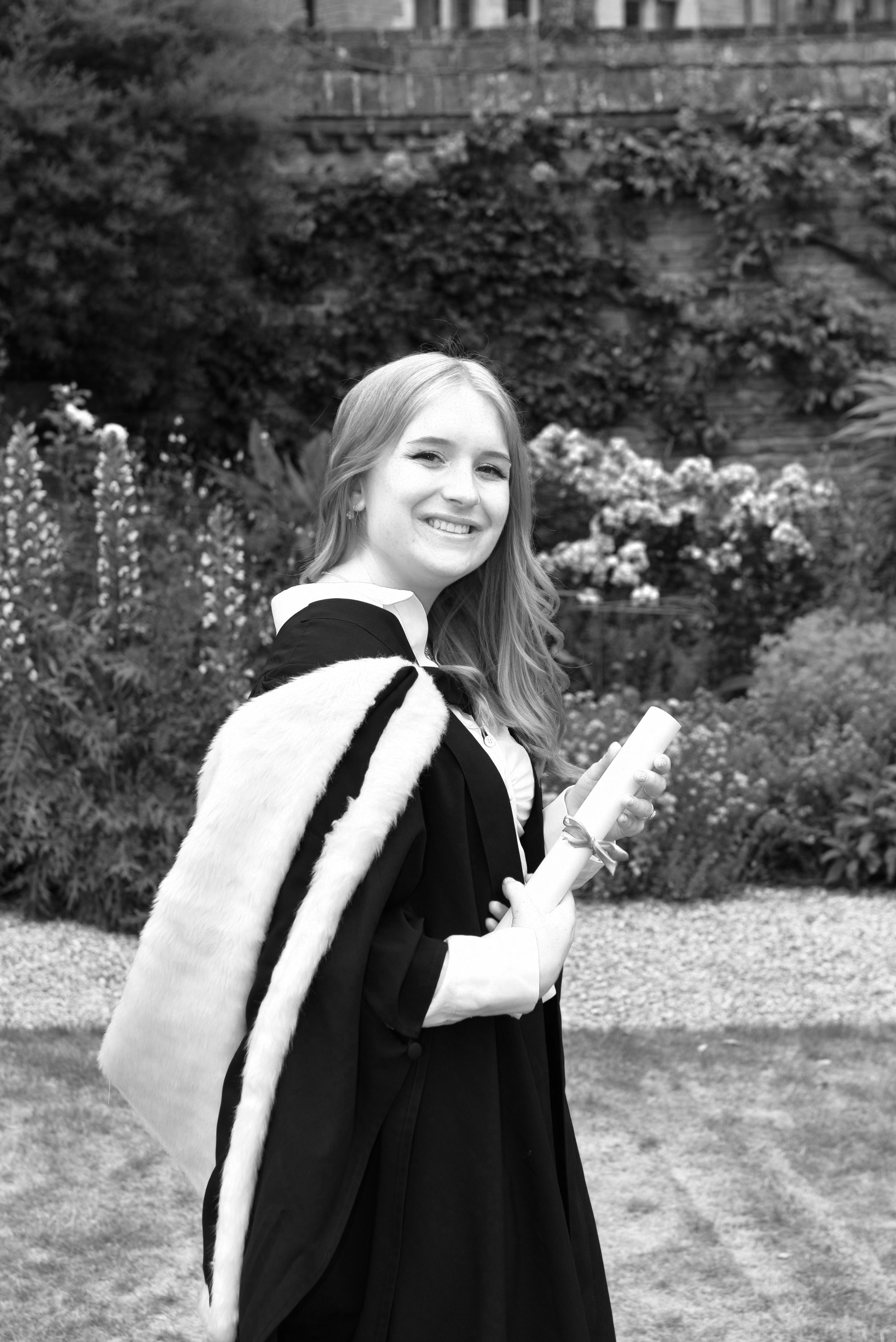
Modern Foreign Languages Summer School
An Exploration of Language, Culture and Literature for Linguistics, Spanish, German and French Applicants
Embark on an illuminating exploration of language, literature and culture at Minds Underground's Languages Summer School, designed for Year 12 students looking ahead to top UK University applications.
Our Summer School offers a comprehensive exploration of both the 'language' side of language degree courses — encompassing writing, speaking, and translating — and the 'literature' side — delving into books, poetry, and film. Sessions 1-4 cater to all language and linguistics applicants, focusing on the essence of language, developing students’ literary awareness, linguistic proficiency, and analytical skills. Examples include discussions on questions commonly encountered in university interviews, such as 'What distinguishes a language from a dialect?' and 'Does vocabulary/ grammar influence thought?' The following sessions are language-specific, offering targeted ‘beyond the syllabus’ masterclasses in Spanish, French, and German. Students can opt to attend just the cross-language/ linguistics sessions (contact us if this is the case) or the sessions in one or two languages, providing a diverse opportunity to explore the cultural, literary and linguistic facets of their chosen language(s).
Enrolling in our Languages summer course will provide you with exposure to first year university level material and hone essential critical analysis skills, mastery of high level concepts and ideas, and the ability to engage in insightful discourse. Tailored for those preparing for top-tier UK university applications, such as Oxbridge, our tutors will guide you in articulating your reasoning and engaging in high level critical discussion, ensuring you're well-equipped for the challenges of university admissions and beyond.
Location: Online
Student Age: 15 - 18
Duration: 8 Weeks
Hours: 12 hours (Weekly 1.5hr session)
Dates: July - August
Why Join the Minds Underground Languages Summer School for Top UK & Oxbridge Languages Applicants?
Strengthen Knowledge For University Application Success
Gain exposure to university level theories and concepts, challenging you beyond school curricula and providing a solid groundwork essential for successful university applications and studies in your target languages or Linguistics.
Guidance from Oxford and Cambridge-educated Language & Linguistics Tutors
Participate in interactive online sessions led by experienced Oxbridge-educated Language tutors, offering invaluable insights and mentorship to enhance your Language education. Our tutors are experienced in all aspects of Language & Linguistics university application preparation.
Hone Analytical Thinking and Debate Skills To Excel in University Interviews & Beyond
Sharpen your analytical and debating skills through engaging discussions on fascinating literary and linguistic concepts, preparing you for the academic rigour of university studies. Each session is structured like an Oxbridge seminar to stimulate high level debate and analysis.
Develop Key Skills University Admissions Tutors Seek in Language Applicants
Summer School students will develop their analytical ability, passion for language-learning and literature, interest in cultural difference, capacity to construct arguments, independence and flexibility of thought, curiosity and desire to learn about all periods of literature and history, and sensitivity to words and their meanings.
Elevate Your Linguistic Fluency, Cultural and Literary Understanding
Immerse yourself in a dynamic learning environment where expert guidance and engaging discussions will further refine your language proficiency, deepen your appreciation for the literature and culture of your chosen language(s), and enhance your skills in analysing both literature and film.
Craft an Exceptional Languages and/ or Linguistics Personal Statement
Students will be able to develop a compelling Languages personal statement through exposure to high-level topics and ideas, ensuring their university application showcases their passion and aptitude beyond school studies. Each session comes with a wealth of further reading ideas for students to delve deeper into topic areas covered.
A Taster of Language Summer Course Topics
Origins
We’ll begin at the beginning, asking why language came to be, what humans need language for (including why other animals don’t have it), and why it is the way it is. From there, we’ll home in on one product of language - literature - and examine how it works, and its purpose as a feature of language in general.
Linguistic Change
Schools encourage students to think of a language as static and monolithic - but a few minutes abroad using another language will dispel this myth immediately. We’ll look at reasons for linguistic change over time, how languages do (or don’t) change in the modern world, and what speakers think of it when it happens.
À la Comédie Française (Example French Session)
France has long been the stage for theatrical greatness with ingenious plays entertaining audiences in the courts, theatres and streets for centuries. In this session we shall look at the two sides of the theatrical coin - tragedy and comedy - through the work of France’s most renowned playwrights: Racine and Molière. Their plays, along with Beckett’s En attendant Godot will then be used to tackle the big questions on theatre such as its possibilities, limits and influence.
Freedom Through Film: The Cinema of Pedro Almodóvar (Example Spanish Session)
It is easy to identify a frame from an Almodóvar film: look for Spanish landmarks, the colour red, or… Penélope Cruz. But behind the bold visuals, Almodóvar’s cinema traces the history of Spanish life post-Franco. His cinema represents a countercultural effort to erase the conservative morals of Francoism. We will use the session to look at his role in la movida madrileña, and how he uses cinematic language to represent post-Franco Spain. From the frenetic energy of Laberinto de pasiones (1982) to the reconciliation with historical memory in Madres paralelas (2021), the session will highlight cinema’s ongoing role in depicting post-Franco dynamics.
Gender in 19th Century German Literature (Example German Session)
This session will examine the ways in which writers of the nineteenth century explored the creation and destruction of a feminine space in German literature. Part of this study involves a question of intention and whether these writers were consciously rebelling against gender stereotypes that had already been established by their predecessors. In particular, we will focus on texts such as Effi Briest by Fontane, a classic text studied in the first year of many German courses across the country. We will use this piece of writing as a spring board for a wider study of femininity and gender theory in this period of German history.
Close Reading and the Application of Linguistics in Your Target Language
In this session, we will focus on close reading of texts in your target language. We will explore how the vocabulary, grammar and structure open up different possibilities for translation than might be immediately obvious. Applying some generic linguistic qualities of your target language, we will explore the richness of the language in conjunction with the meaning of words, in order to create a thorough and meaningful version of the texts. We will look at a small selection of extracts, ranging from short articles to poetry, in order to develop some fundamental literary analysis skills that form the basis of a thorough study of literature. This discussion will then allow for a general introduction to Oxbridge interviews and how to stand out as an applicant for those applying.
Learn From Inspiring Oxbridge Language Graduates
Example Languages Tutor: Rhys
Rhys graduated with a First in Linguistics and Spanish from St. Catherine’s College, Oxford in 2012. He has a particular (but rarely indulged!) interest in both Old Norse and modern Icelandic, as well as on how languages in general change over time - and was the winner of the Fred Holcroft Prize for study of the history of Spanish as a language. Rhys began his tutoring work focussing on Oxbridge admissions, and has ten years’ experience in the field. This covers all stages of the admissions process, from initial course selection through to final interview practice.
Example Languages Tutor: Ella
Ella graduated from Trinity Hall College, Cambridge with First-Class Honours in Modern and Medieval Languages (French and Spanish.) Ella mentors students for Oxbridge MML applications and is passionate about helping students feel confident in such an overwhelming process. She has assisted students in their successful entrance into top universities to study Modern Languages via personal statement help, test advice, and general information about the course and university life.
Booking the Languages Summer School
Book now to ensure your spot in the Summer School. Our booking page includes 2025 dates and pricing. We limit class sizes to facilitate group discussion, tailored support and individual feedback.
Are You Looking For Further Support For Your Languages University Application?
-
The Summer School is designed to provide exciting talking points for your personal statement. If you are looking for some one-to-one tuition tailored to your specific application, contact us to arrange sessions with an Oxbridge Language tutor! We have tutors in all languages of application e.g. Italian, Spanish, German, French, Portuguese, Russian, Arabic.
-
Are you preparing for future interviews at Oxford, Cambridge or other top universities? Our Oxbridge Language tutors prepare students for all formats of interview question, hosting preparatory sessions and mock interviews. Learn more here.
-
We offer specialised preparation for Language admissions tests, including the Oxford MLAT (Modern Languages Admissions Test), Oxford OLAT (Oriental Languages Aptitude Test), Cambridge MML (Modern and Medieval Languages Admissions Assessment) and other relevant assessments. Visit our Admissions Test page on the U2 Tuition website to learn more.
Frequently Asked Questions FAQ – Languages Summer School
What is the focus of the Modern Foreign Languages Summer School?
Our Languages Summer School provides a comprehensive exploration of both the 'language' and 'literature' sides of language degree courses. The program spans 8 weeks, offering sessions that cater to all language students, focusing on language essence, literary awareness, linguistic proficiency, and analytical skills. Language-specific masterclasses in Spanish, French, and German follow, delving into 'beyond the syllabus' content to explore cultural, literary, and linguistic facets.
Can I attend masterclasses in more than one language?
Certainly! Students can opt to attend sessions in one or two languages, providing a unique opportunity to explore multiple cultural, literary, and linguistic dimensions.
How will the Languages Summer School benefit my university applications?
Enrolling in our Languages summer course exposes you to first-year university-level material, refining essential critical analysis skills, and mastering high-level concepts. Tailored for those preparing for top-tier UK university applications, our tutors guide you in articulating reasoning and engaging in high-level critical discussions, ensuring you're well-equipped for the challenges of university admissions and beyond.
Are the sessions conducted online?
Yes, the Modern Foreign Languages Summer School is an online programme, providing a dynamic and interactive learning experience accessible from anywhere.
Is this summer school suitable for Year 12 students interested in French, Spanish, or German?
Yes, the Modern Foreign Languages Summer School is an online programme, providing a dynamic and interactive learning experience accessible from anywhere.
How do the language-specific masterclasses differ from the general sessions?
While the initial sessions cater to all language students, the language-specific masterclasses (Sessions 5, 6 & 7) offer targeted content beyond the syllabus, providing a deeper dive into the cultural, literary, and linguistic aspects of the chosen language(s).
How can I register for Minds Underground’s Languages Summer School?
The steps to join us for our 2024 Languages Summer School are simple. Registration details and enrolment information can be found on the Summer School booking page. Complete the registration process and we will send you logistical details a month or so before the course commences.
What is the schedule for the virtual sessions?
The Languages Summer School sessions take place weekly. Sessions 1-4 are 1.5 hours each and Sessions 5, 6 & 7 are 1 hour each. The final session is 1.5hrs and involves discussing how to utilise the material learnt in the summer school when it comes to university applications. The course runs from July to September, providing a flexible and comprehensive learning experience.
Will I receive a certificate upon completion of the Languages Summer School?
Participants who successfully complete the programme are able to request a certificate of participation, which can be a valuable addition to your academic achievements and university applications.
Can I expect personal guidance and support during the Languages Summer School?
Absolutely. Our Summer School is designed to provide personal guidance and support. We keep class sizes small to ensure lots of interaction and individual attention. You'll have the opportunity to interact with our team of experts, ask questions, and receive assistance with your academic and university preparation needs.
Is there an option to follow the Languages Summer School offline if I can’t attend the live sessions?
Yes, we understand that scheduling conflicts can arise. We offer an offline programme option where students unable to attend live sessions can receive full session recordings and materials. This allows you to engage with the content at your own pace and convenience.
How does the offline program work, and what materials will I receive?
Students opting for the offline programme will receive access to recorded sessions, lecture materials, assignments, and resources related to each session. You can review the content at your own convenience, ensuring you don't miss out on any valuable information.
Can I still interact with instructors and ask questions if I choose the offline option?
While the offline Summer School doesn't provide real-time interaction with instructors, we encourage participants to reach out with questions through email. Our team is committed to providing support and addressing queries to enhance your learning experience.
Are there specific deadlines or timelines to follow for the offline programme?
The offline programme is designed to be flexible, allowing you to set your own pace within the programme's overall duration. However, we recommend staying on track with the programme schedule to ensure you have ample time for completion and any potential follow-up questions.
How do I enrol in the offline programme, and is there a separate registration process?
To enrol in the offline programme, simply follow the same registration process as for the live sessions on our website. During registration, you can indicate your preference for the offline option. You will receive access to the programme materials upon completion of each session.
Is there a difference in the cost between the live and offline programme options?
The cost for both the live and offline programme options remains the same. We aim to provide a flexible learning experience that accommodates different needs and schedules without additional cost considerations.
Can I switch from the live programme to the offline programme (or vice versa) if my circumstances change?
Yes, you can switch between the live and offline programme options based on your circumstances. Please contact our team to discuss any changes or transitions in your programme participation.
How do I access the recorded sessions and materials for the offline programme?
After registering for the offline programme, you will receive instructions on how to access the recorded sessions and materials through our online platform. This information will be provided to you before the start of the programme.
Will there be any assessments during the summer school?
The summer school primarily focuses on immersive learning and skill development rather than formal assessments. The emphasis is on exploring advanced topics, problem-solving, and honing essential skills for future academic pursuits.
How do I contact Minds Underground for further enquiries?
If you have any questions or require additional information, please feel free to contact us through the contact form on our website or send an email to enquiries@mindsunderground.com, quoting your contact number in case your email ends up in our Spam folder! Our team will be happy to assist you with any queries.









